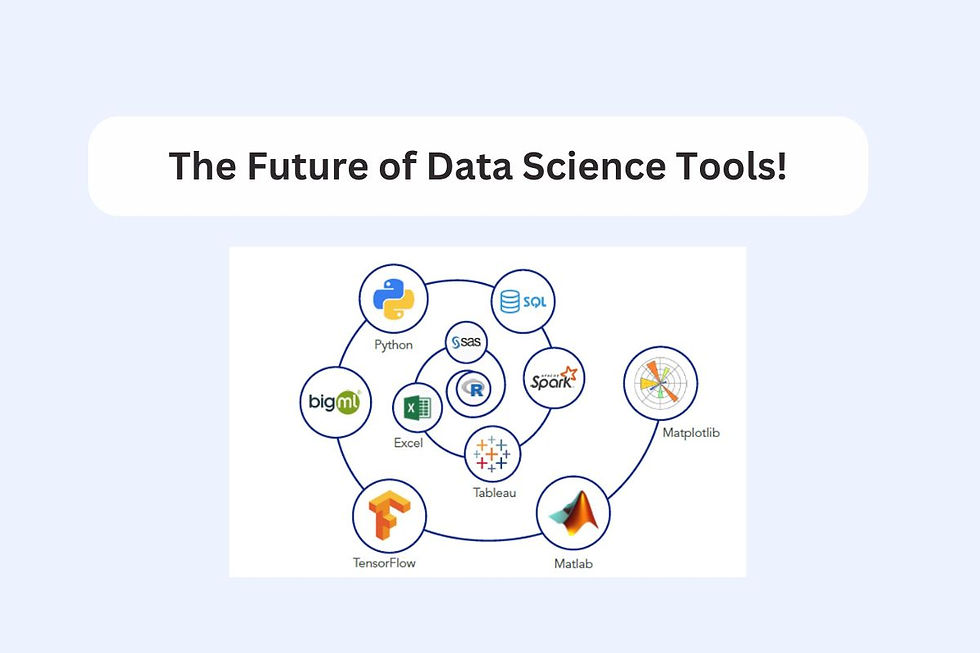Top 10 Benefits of Using MongoDB in Development
- archi jain

- Aug 16, 2024
- 4 min read

MongoDB, a leading NoSQL database, offers numerous advantages that make it a top choice for modern development. Its flexible schema allows for rapid adjustments and iteration, essential in today’s fast-paced tech environment. With powerful features like horizontal scaling, real-time analytics, and seamless integration with various platforms, MongoDB supports developers in creating robust, high-performance applications. Its ability to handle diverse data types and structures enhances its versatility, while built-in replication and sharding ensure reliability and high availability.
Benefits of using MongoDB in development
1. Flexible Data Model
MongoDB stores data in JSON-like documents called BSON (Binary JSON). This document model is flexible and schema-less, allowing developers to store data in a way that aligns with the needs of their application. Unlike relational databases, which require a predefined schema, MongoDB’s document model enables you to easily modify and adapt your data structure as your application evolves.
Benefit: Developers can quickly adjust their data model without disrupting existing data or needing complex migrations, making it ideal for rapidly changing or iterative development processes.
2. Scalability
One of MongoDB’s core strengths is its ability to scale horizontally. It supports sharding, which distributes data across multiple servers. This means as your application grows and demands increase, you can easily add more servers to handle the load.
Benefit: MongoDB’s built-in sharding ensures that your application can scale out seamlessly, handling increased traffic and larger datasets without performance degradation.
3. High Performance
MongoDB is designed to handle high-performance read and write operations. It provides in-memory processing and indexing, which speeds up query execution. Features like write-ahead logging and data replication ensure that data is processed efficiently and consistently.
Benefit: This high performance is beneficial for applications that require real-time data processing and quick access to information, such as e-commerce platforms and social media apps.
4. Ease of Development
MongoDB’s document-oriented data model is intuitive and mirrors how developers structure data in their application code. This alignment between application code and database schema reduces the need for complex mapping and translation layers, simplifying the development process.
Benefit: Developers can work more efficiently by writing less code and avoiding the complexity often associated with relational databases.
5. Rich Query Language
MongoDB offers a powerful and expressive query language that supports a wide range of operations, including filtering, sorting, and aggregation. Its query capabilities are robust, allowing you to perform complex queries and data manipulations easily.
Benefit: The rich query language helps developers quickly and efficiently retrieve and process data, enhancing the overall functionality of applications.
6. Built-In Replication
MongoDB includes built-in replication through replica sets. A replica set is a group of MongoDB servers that maintain the same data set. Replica sets provide redundancy and increase data availability, ensuring that your application remains operational even if a server fails.
Benefit: High availability and fault tolerance are crucial for maintaining the reliability of applications, especially in production environments where downtime can be costly.
7. Data Aggregation
MongoDB’s aggregation framework allows for complex data transformations and aggregations. You can use various aggregation pipelines to process and analyze data, such as grouping, filtering, and calculating.
Benefit: The aggregation framework makes it easier to perform sophisticated data analysis and reporting directly within the database, reducing the need for additional data processing layers.
8. Support for Geospatial Data
MongoDB provides built-in support for geospatial data, allowing you to store, query, and index location-based information. This feature is particularly useful for applications that need to handle geographic locations, such as mapping services or location-based search.
Benefit: Handling geospatial data efficiently within MongoDB simplifies the development of location-aware applications and enhances user experiences with features like nearby search.
9. Horizontal Scaling
In addition to sharding, MongoDB supports horizontal scaling through automatic data distribution across multiple servers. This capability allows you to manage large datasets and high-throughput applications more effectively.
Benefit: Horizontal scaling ensures that your application can handle increasing amounts of data and traffic without a single point of failure, contributing to a more robust and scalable infrastructure.
10. Strong Ecosystem and Community
MongoDB boasts a strong ecosystem of tools and libraries that integrate seamlessly with its database. Additionally, it has an active community of developers and contributors who provide support, share knowledge, and contribute to ongoing improvements.
Benefit: Access to a wide range of tools and community support enhances the development process, helping you solve problems more efficiently and stay updated with the latest advancements in MongoDB.
Full Stack Development Training Course
If you’re interested in leveraging MongoDB and other modern technologies to their full potential, Full Stack Development Training Course in Indore, Delhi, Ghaziabad, and other locations across India. They offer comprehensive training in both front-end and back-end technologies, including MongoDB, which will equip you with the skills needed to build robust and scalable applications.
Benefit: Participating in a Full Stack Development course will provide you with hands-on experience and a deep understanding of how to integrate MongoDB with various technologies. This knowledge will enhance your development skills, making you more competitive in the job market and better prepared for real-world challenges.
Conclusion
MongoDB offers a range of benefits that make it an attractive choice for modern application development. Its flexible data model, scalability, high performance, and ease of development are just a few of the reasons why developers choose MongoDB. With built-in features for replication, aggregation, and geospatial data, as well as strong community support, MongoDB provides a robust platform for building scalable and high-performance applications.
Additionally, a Full Stack Development Training Course can further enhance your skills, helping you effectively implement MongoDB and other technologies in your projects. Whether you’re developing a new application or looking to enhance an existing one, MongoDB’s features and professional training will support your application’s growth and success.



Comments